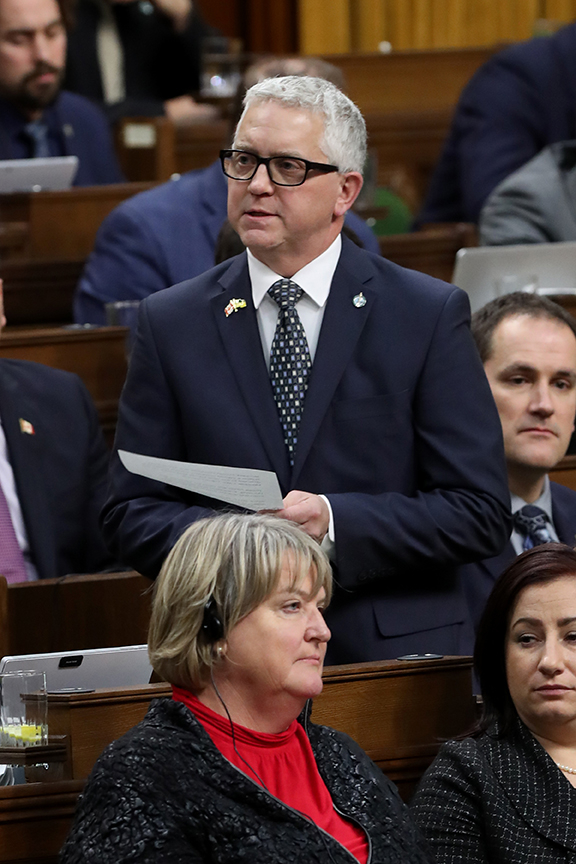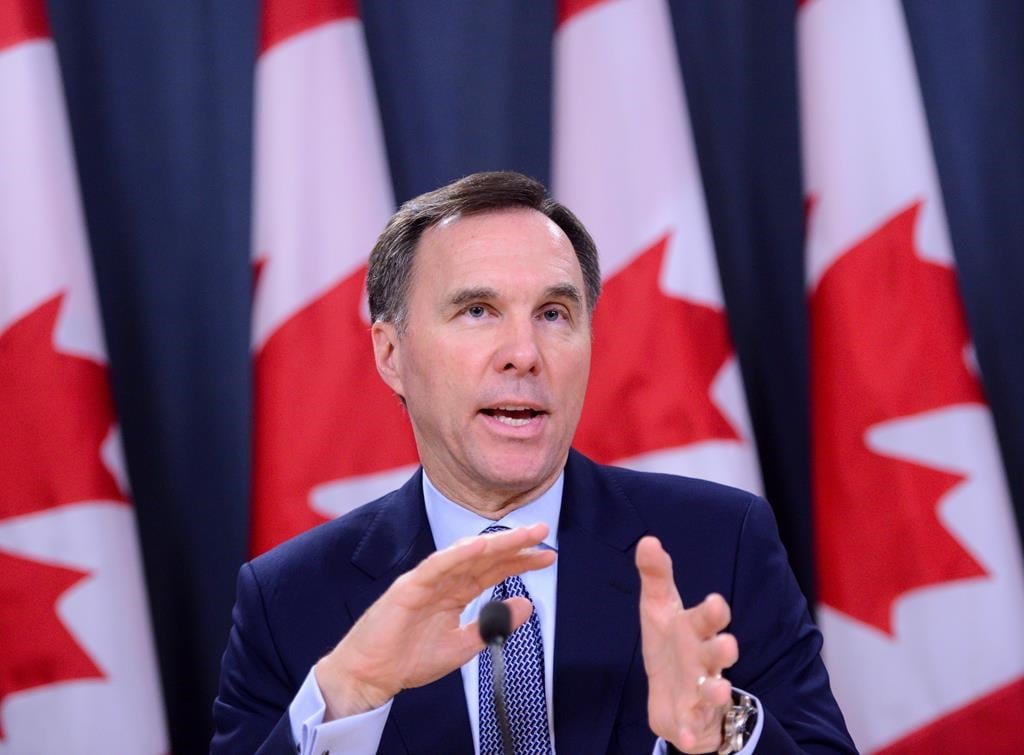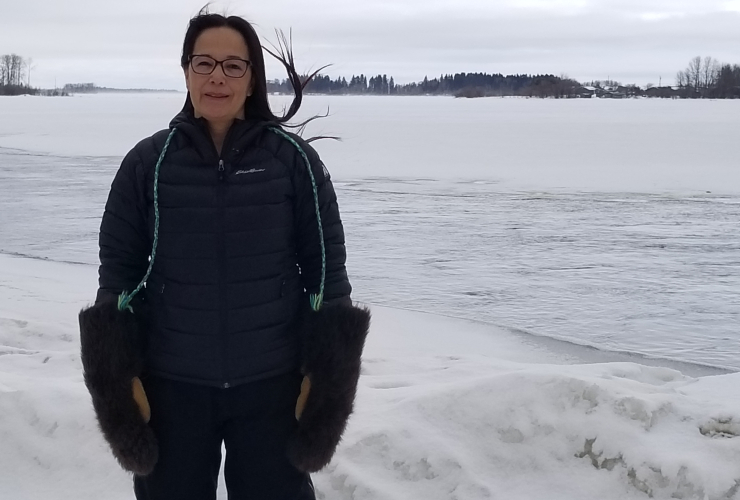Prime Minister Justin Trudeau promised up to $306.8 million in funding for small and medium-sized Indigenous businesses at his daily briefing on Saturday.
The new funding includes support for Indigenous businesses that can’t access current COVID-19 emergency funding. It is expected to benefit 6,000 Indigenous-owned businesses across Canada. The announcement comes in the context of mounting pressure for a federal solution that would include Indigenous limited partnerships, many of which might not have qualified under the original legislation within the Canada Emergency Wage Subsidy Program.
“I think the big thing is that this has an impact on many, many businesses operating across both my riding and across the country and I think we’re just asking for them to be included in the process here,” Gary Vidal, Conservative MP for the Indigenous-majority riding of Desnethé—Missinippi—Churchill River in northern Saskatchewan told National Observer in an interview before the announcement.

Vidal, who is also shadow minister for Indigenous services in Ottawa, had called for Minister of Finance Bill Morneau to redefine what constitutes an eligible entity or prescribed organization within the legislation and allow different organizations to qualify for emergency relief on Wednesday. Vidal said that he got confirmation from the finance minister’s office that limited partnerships didn’t qualify after he sent a letter to Morneau on April 15th and made it public.
He told National Observer that Minister Morneau should have been aware of the gap in coverage for Indigenous limited partnerships before drafting the original legislation that didn’t include them.
“What we’re asking for or hoping for at this point is that the minister would actually take that step to enact the legislation that would include those entities,” Vidal said.
Some relief came this weekend with the Prime Minister’s announcement. Additional funding will help Aboriginal financial institutions cover expenses and to increase operational capacity at the National Aboriginal Capital Corporations Association - a network of 59 Aboriginal institutions that offer financial services, loans and grants to Indigenous entrepreneurs.
“We will always be there for Canadian businesses, and we are working hard to make sure that Indigenous business owners have the support they need during this period of uncertainty,” Trudeau said.
"Entrepreneurs are at the heart of communities right across the country, and we’re going to help them bridge to better times.”
The funding will operate through Indigenous financial institutions that offer financing and business support services to First Nations, Inuit and Métis businesses.
“Businesses across Canada are being impacted by COVID-19 and the government is taking action,” Morneau said.
“This targeted support will help First Nations, Inuit and Métis businesses have greater access to financing that will help them stay strong, so they can continue to grow and thrive when this crisis passes.”

Aid for Indigenous businesses will be administered by the National Aboriginal Capital Corporations Association and the Métis capital corporations in partnership with Indigenous Services Canada.
“Some Indigenous businesses who are already facing unique challenges, including being in rural or remote locations and having less access to capital, are disproportionately affected by this unprecedented situation,” Minister of Indigenous services Marc Miller said.
“The support provided will allow for maximum flexibility in supporting local businesses, whether they be entrepreneurships, cooperative businesses, or any of the many industries across Canada to continue contributing to their communities.”
“We’ve been engaged in this for over a week already… We’ve been in touch with a couple of different federal government ministries and departments and asked them to consider this when they were drafting [the legislation] and when we got the final legislation on Saturday we were still looking for some clarity to whether there was a mechanism in there to include these limited partnerships,” Vidal said.
He added that limited partnerships operate across Canada’s economy in industries ranging from forestry, mining and manufacturing to construction and consumer sales.
“These businesses are the life-blood of First Nations communities providing jobs, support for community programming and a foundation on which to build future prosperity,” Vidal said.
The issue of Indigenous limited partnerships qualifying for these types of programs has come up in the past. Limited partnerships vary in size and constitution but often include seasonal workers in industries such as tourism that have been among the first to go when essential services are prioritized and travel restricted.
“If First Nations businesses through their limited partnership model are in fact excluded from the benefits of the emergency wage subsidies, it can only be because of an oversight in the creation of these important wage subsidy programs,” Al Balisky, president of Meadow Lake Tribal Council Industrial Investments said in a statement before the announcement.
“Quite frankly very few people understand the complexities of a northern economy. There are a lot of people who are self-employed,” said Ken Coates, Canada Research Chair in regional innovation at the University of Saskatchewan’s Johnson-Shoyama Graduate School of Public Policy.
"We always look after shipyards, and we always look after big industry and railway companies and airline companies but when you start seeing these crises it’s often the smaller people who are hit the most.”
Coates said that he thinks Canadians should give credit where it’s due to the federal government because of the unprecedented nature of the pandemic and the uncertainty of how long it will last. “I think the government quite frankly must be caught between a rock and a hard place… I think we’ll know within the next two weeks whether what we’re doing is just putting in patches or whether we’re actually doing long term structural changes.
The top government priority would be making sure that people have their basic needs met and that the questions of categories and structures and processes should take second place to that.”
Vidal pointed out that the limited partnership phenomenon isn’t unique to his riding, or Saskatchewan. He said that it’s a popular business model that implicates thousands of Indigenous livelihoods across Canada.
“We’re talking about just my riding but if you broaden this across the national perspective this is a very, very common business model for First Nation businesses to utilize. I know we’re talking about hundreds of jobs at least in our riding alone. I think I’m being pretty conservative at hundreds of jobs to be honest. Across the country we’ve gotta be talking thousands,” Vidal said.
“I would really like to think that it’s an inadvertent omission. I really hope that’s the case but I know there was some ongoing discussion and they were made aware of this.”







Comments